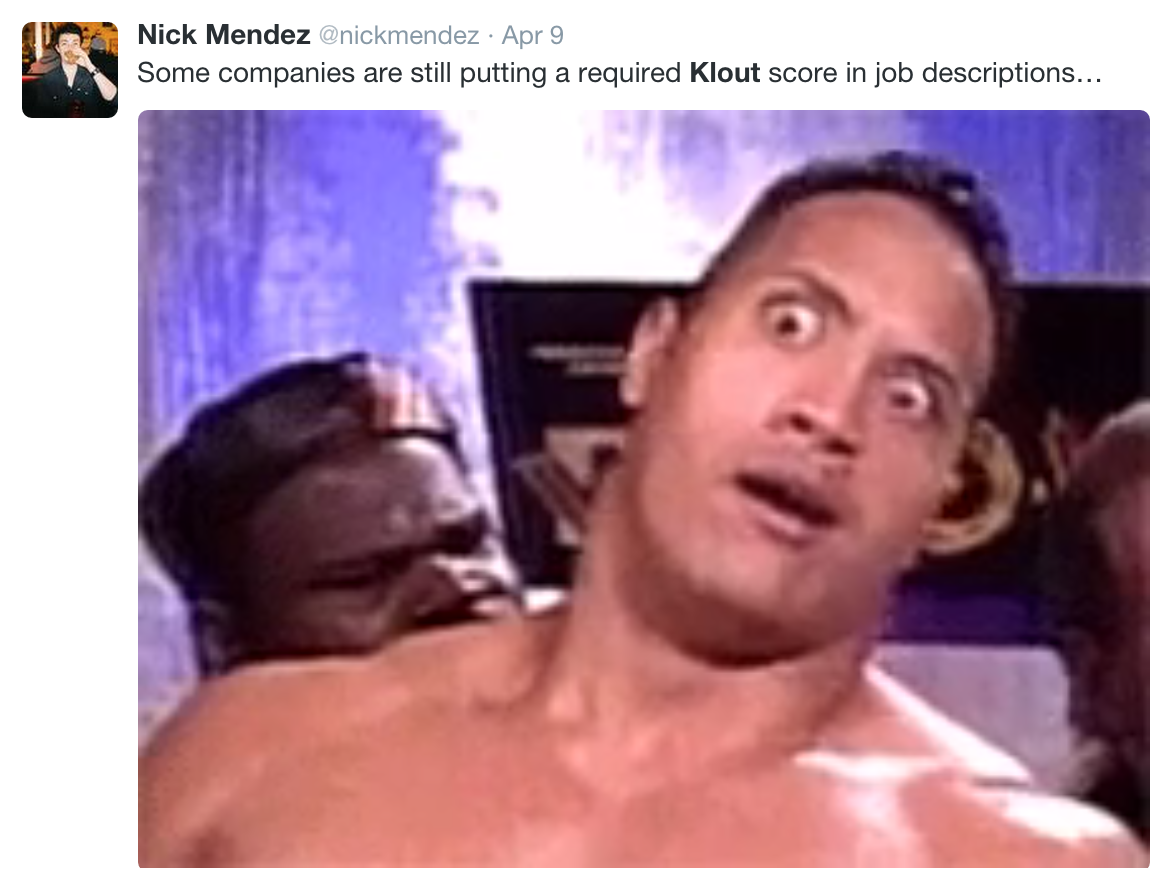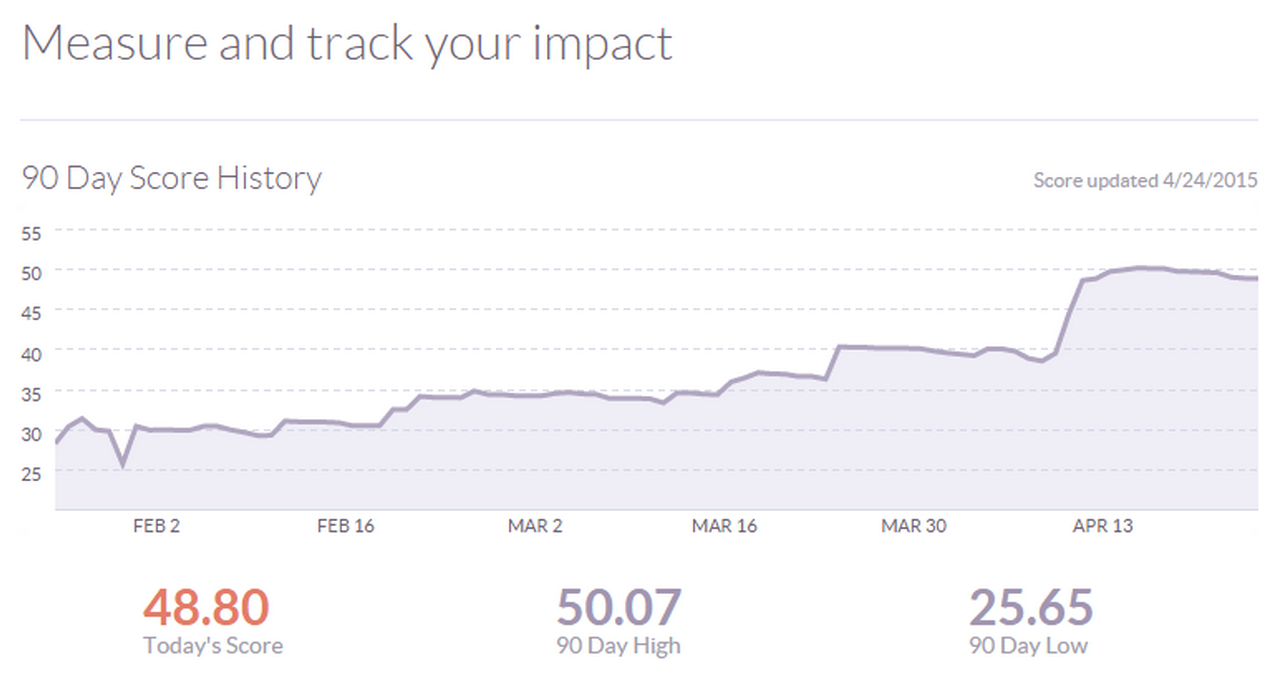How I Gamed My Klout Score in 6 Days for $10
A few weeks ago, I came across a post on Twitter from this dear community’s wrangler, Nick Mendez. As usual, he spoke softly and carried a big GIF:
 I could not believe my eyes. The Rock’s traps aside, they were also hard to fathom, I had somehow missed the memo that Klout played a role in hiring decisions. This immediately struck me as a bit misguided, as I’m familiar with how easily social media statistics can be toyed with. I may or may not have used this fact to win myself some Disclosure tickets a few summers ago, but I digress.
I could not believe my eyes. The Rock’s traps aside, they were also hard to fathom, I had somehow missed the memo that Klout played a role in hiring decisions. This immediately struck me as a bit misguided, as I’m familiar with how easily social media statistics can be toyed with. I may or may not have used this fact to win myself some Disclosure tickets a few summers ago, but I digress.
“Klout must be different,” I rationalized. After all, would companies use easily manipulated social influence scores to steer their hiring decisions? Unfortunately, that answer appears to be an unequivocal yes.
Launched in 2008, it did not take too long for Klout scores to become part of the hiring conversation for candidates seeking work within the Internet marketing industry, especially social media-oriented roles. Not long after, questions about the validity of this method were raised and stories popped up warning against hiring based on Klout scores rather than relevant professional experience.
Which is why I was surprised and slightly amused, just like The Rock, that this still goes on. In this instance, the company required a Klout score above 50 for candidates to be considered for a sales role.
I decided to achieve this Klout score to see what it feels like to be hirable. On April 9th, I spent $10 on Fiverr.com for 15,000 retweets. That snowballed into a smattering of additional retweets and favorites, which dominated my Twitter activity for the next week.
By April 15th, I had achieved my coveted 50 point score. It was about as easy as I had expected.

Now, this would have made no difference during the interview, as I surely am not “social media savvy” nor do I have much sales experience to speak of. Still, the fact that I achieved one of the very few pieces of advertised hiring criteria with $10 and six days of patience begs the question: Why ask for a Klout score at all?
To help shed some light on this, I asked Jeff Esposito, Boston-based social media practitioner and blogger, if Klout has any, erm, clout, as a legitimate piece of hiring criteria.
“Numbers in a vacuum do not tell a story or showcase a body of work.”
“While I am sure there is credit in the algorithm, like all mathematical systems it can be gamed,” he said. “Over the past few years, there have been countless articles on companies using Klout as a measuring stick for hiring. That scares me. The reason being, numbers in a vacuum do not tell a story or showcase a body of work. You may be looking to hire a social media manager and have two candidates: one with a 65 score and the other with a 35 score. On paper the 65 is better, but if you peel back the onion the 35 may be more personal and less promotional on social, making their score go down. Maybe the 35 also generated $3MM in revenue via Facebook ads and had a great UGC campaign on Tumblr, but was busy doing work instead of trying to be seen. So looking at that, who would you rather have?”
Jeff raises a good point. For a company to value Klout score, the activities undertaken to acquire that score should align with the responsibilities that role requires. If that’s the case, then maybe Klout should be part of the conversation. Otherwise, what exactly is being measured? On top of that, how confident can a hiring manager be that the score wasn’t purchased for the price of a sandwich?
While the appeal of a single number summing up a candidate’s Internet influence is understandable, it’s difficult to swallow the shortcomings and disclaimers that accompany it. Until those can be adequately addressed, Klout scores should probably stay out of job descriptions and candidates should scrutinize employers that request one.
You should take what I say seriously; I have a Klout score of nearly 50, after all.
Kyle Risley is an SEO expert at Vistaprint and also provides freelance SEO consulting. When he is away from his keyboard, he’s usually at a concert or digging through records.
This work is licensed under a Creative Commons Attribution-ShareAlike 4.0 International License.


